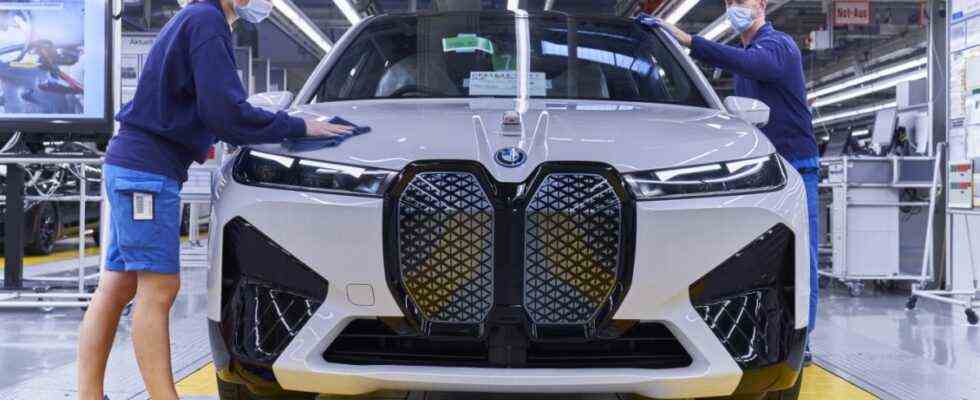For car manufacturers, the SOP, the start of production, is always a special day: the result of several years of development work in design and technology goes into series production. The parts from the suppliers are on the shelves, the robots are adjusted. Now the tapes are running. But this Friday was different again at the BMW plant in Dingolfing, where pretty much all vehicle models from the 4-series up to now have been built. For the first time, an electric car is being built in the huge factory. The iX, which used to be called iNext, is an SUV in the 100,000 euro category with a range of 600 kilometers, lots of power and, of course, all kinds of digital functions.
For plant manager Christoph Schröder, this is a “big moment” because you weren’t a day too late, despite the pandemic. And because it is a completely new vehicle that has no predecessor. A “technology carrier” is what they call the car that has been completely redesigned and is supposed to combine everything that BMW engineers currently have to offer. And yet it will be manufactured on a so-called line, on which conventional combustion vehicles are built. A BMW specialty that saves costs and enables high flexibility.
In contrast to other manufacturers, such as Audi, who plan to sell their last combustion cars in the early 2030s, BMW is currently not setting a schedule to phase out gasoline and diesel. “I don’t think an end date for combustion engines makes sense,” said production director Milan Nedeljkovic. They are relying fully on electromobility – which created 2,000 jobs in Dingolfing – and expect an exponential increase in production, just as the iX will not be “a niche product”. But: “As long as combustion engines are in demand, we will produce.” The same also applies to BMW’s very first electric car, the i3, which is still running – and in great demand, as Nedeljkovic says. As long as this pioneering vehicle from 2013 has a market, it will be built; an end date has not been decided, contrary to what was recently rumored.
At BMW, they still consider this path to electromobility to be too uncertain. This was also made clear by CEO Oliver Zipse on Friday. While the colleagues from production in Dingolfing were celebrating the E-Auto SOP, he received EU Commissioner Thierry Breton at the headquarters in Munich. The gentlemen naturally drove the iX test and Zipse explained: Electromobility can only be ramped up if the charging infrastructure grows significantly, in all EU member states. But you experience different speeds, also when it comes to customer needs. “That is why we ask for a clear signal from the Commission to remain technology-neutral,” said Zipse. BMW is thinking beyond the battery electric vehicle. Hydrogen drives, for example, could also reduce carbon dioxide emissions in car traffic. And even if it was not officially mentioned: they also mean gasoline and diesel at BMW, especially in the hybrid version with an electric motor.

